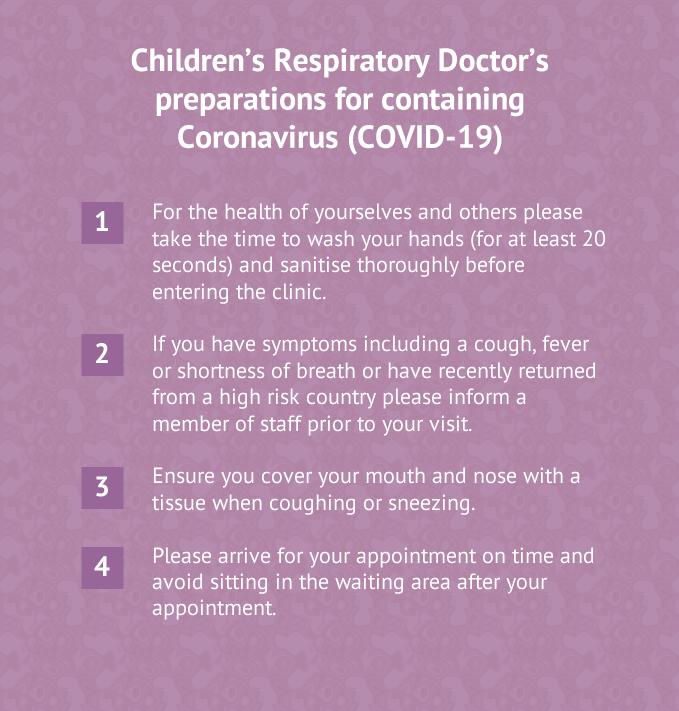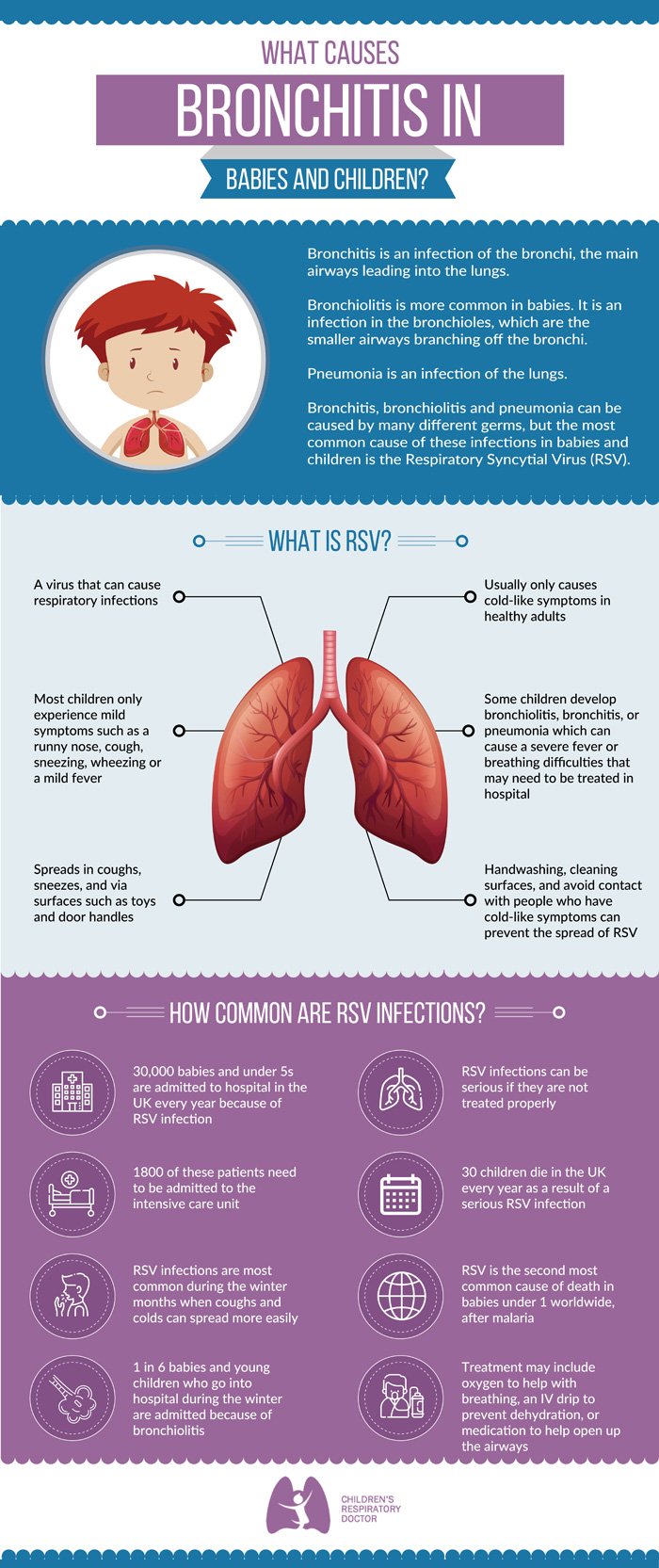Bronchitis is an infection of the bronchi, the main airways leading into the lungs.
Bronchiolitis is more common in babies. It is an infection in the bronchioles, which are the smaller airways branching off the bronchi.
Pneumonia is an infection of the lungs.
Bronchitis, bronchiolitis and pneumonia can be caused by many different germs, but the most common cause of these infections in babies and children is the Respiratory Syncytial Virus (RSV).
What is RSV?
- A virus that can cause respiratory infections
- Usually only causes cold-like symptoms in healthy adults
- Most children only experience mild symptoms such as a runny nose, cough, sneezing, wheezing or a mild fever
- Some children develop bronchiolitis, bronchitis, or pneumonia which can cause a severe fever or breathing difficulties that may need to be treated in hospital
- Spreads in coughs, sneezes, and via surfaces such as toys and door handles
- Handwashing, cleaning surfaces, and avoid contact with people who have cold-like symptoms can prevent the spread of RSV
How Common Are RSV Infections?
- 30,000 babies and under 5s are admitted to hospital in the UK every year because of RSV infection
- 1800 of these patients need to be admitted to the intensive care unit
- RSV infections are most common during the winter months when coughs and colds can spread more easily
- 1 in 6 babies and young children who go into hospital during the winter are admitted because of bronchiolitis
- RSV infections can be serious if they are not treated properly
- 30 children die in the UK every year as a result of a serious RSV infection
- RSV is the second most common cause of death in babies under 1 worldwide, after malaria
- Treatment may include oxygen to help with breathing, an IV drip to prevent dehydration, or medication to help open up the airways




